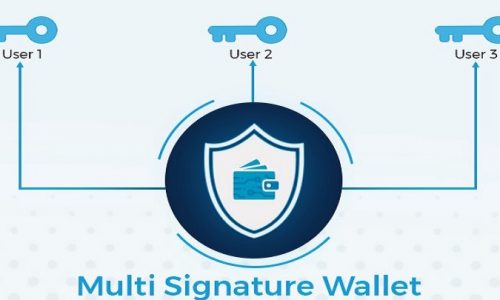Blockchain technology has come a long way since it was introduced to support Bitcoin in 2009. It is still taking time for many companies to embrace the technology and what it is capable of. While it is unlikely that widespread use of blockchains will not happen overnight, there are breakthroughs being made on a consistent basis. Here is a look at what could be next for the blockchain.
The Ability to Scale
One of the big debates right now among those who study blockchains is the ability, or lack thereof, of the technology to scale. By scale we mean the ability to manage larger projects and work across various sectors. We have seen where some banks are experimenting with their own blockchains. This is impressive, but the work that has been done so far involves using the technology on a single process like the loan that was issued to a business by BBVA.
There is the possibility for the blockchain to be used by government agencies, healthcare providers, insurance companies, and more. The big hindrance right now to more companies accepting the technology is a lack of research and development that will enable independent blockchains to work together across various sectors.
There is no guarantee at present that a blockchain developed by BBVA, for example, with one that is developed by a credit card processor. For maximum efficiency there needs to be a way that the blockchains from different companies can work with one another to accomplish tasks.
It is reasonable to assume that much thought is being given to how the blockchain can scale and evolve while retaining its defining characteristics. After all, if it sacrifices the very things that make it a blockchain in order to achieve scale, what is the point?
More Blockchains, Fewer Tokens
Another development that will likely happen with blockchains is that digital tokens will become less of a factor in their development. Bitcoin introduced the world to the blockchain and vice versa. Then Ethereum came along and used its own cryptocurrency, Ether, to power the applications on its network. Now, we are seeing blockchains being developed that have no real need for an association with cryptocurrency.
Here’s the main issue. Banks are still at odds with cryptocurrencies like Bitcoin. They want little or nothing to do with them, and why would they? There is no profitability in digital currency for banks. At the same time, banks want to explore blockchains and their advantages. Some believe that there are many ways to use blockchains that do not involve digital tokens. For banks to become more comfortable with using the tech, they will probably need to develop blockchains that effectively distance themselves from cryptocurrency.
The truth is that the market has seen a glut of altcoins, many of which have no hope of achieving the success of Bitcoin and Ethereum. As more ICOs fail and investors become wary of new coins, the number of new coins that are introduced will surely drop. But it is reasonable to expect that the blockchain itself will go on and be used for other projects.
Moving Towards Digitized Ledgers
The way that individuals record and preserve transactions has evolved throughout history. The blockchain has the potential to move society towards a place where digitized ledgers are the norm. The public nature of a distributed ledger means that losing access to the record is virtually impossible. Anyone running the network has a copy of the blockchain.
A digitized ledger system also means being able to preserve more data in a smaller amount of space. Have you ever been the courthouse where you live and observed the sheer volume of records that are kept? Marriage licenses, birth and death records, property deeds. In addition to the physical space that is required to maintain hard copies of records, there is also the need to keep a staff that is able to keep the records in order.
A blockchain has the potential to eliminate these problems. And, because a blockchain is decentralized, there is no problem with the sharing of information between different agencies. This could create more efficient management of data. You can expect to see government entities begin to develop their own blockchains as the technology is developed further.
The next 10-20 years should be an exciting time for blockchain development. As we stated to begin this series of articles on the blockchain, the next 100 years may validate the most important technological innovation of the century.
*** Here at CryptoSwede you will find information on Crypto Mining the different cryptocurrencies as well as the best cryptocurrency exchanges. You can trade or you can set up trading bots instead and then store the crypto on crypto wallets. Later, spend them using crypto debit cards!***




